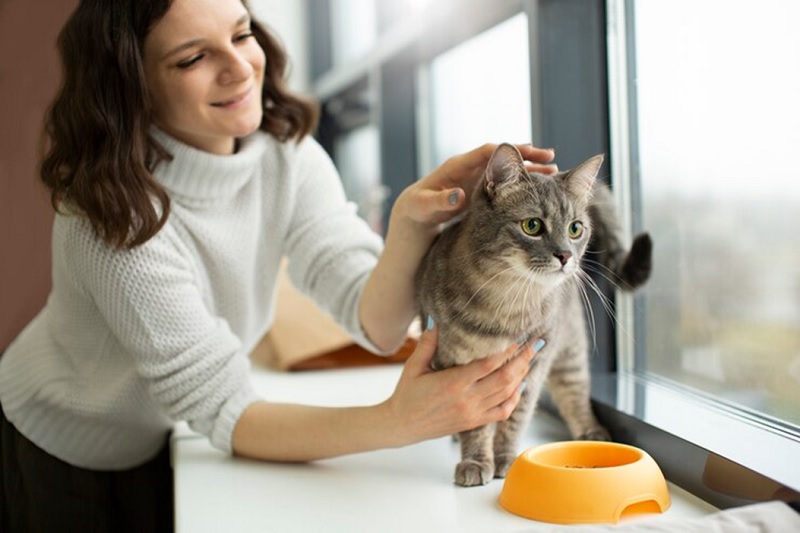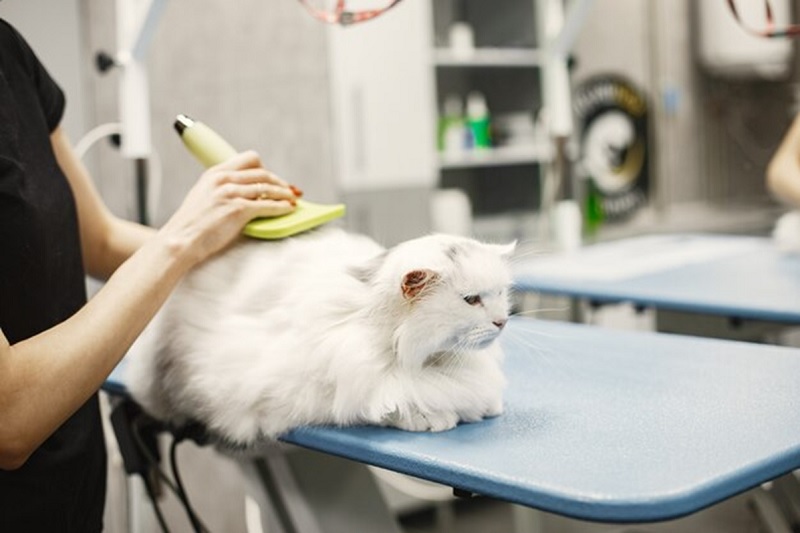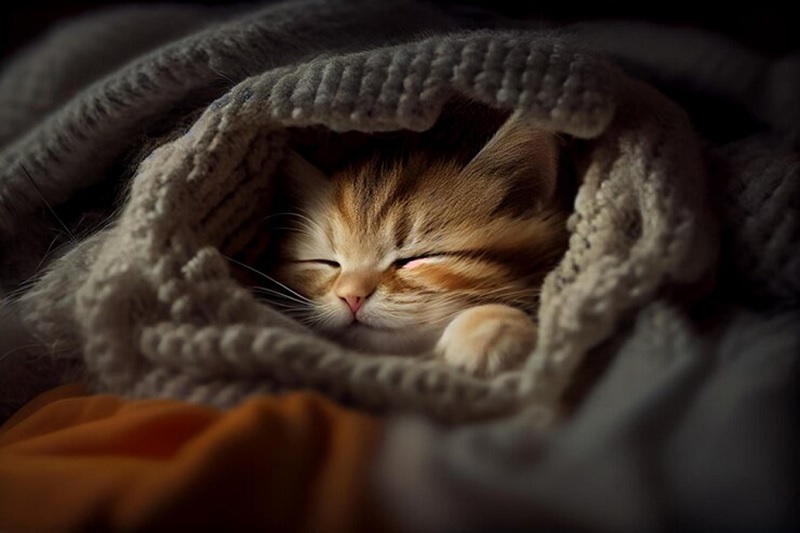
Cats are fascinating and enigmatic creatures, and understanding their behaviors is crucial for building a strong and loving bond with them. In this article, we’ll explore five essential cat habits that every cat owner should be aware of. These habits shed light on your feline friend’s needs, preferences, and instincts, making it easier to provide them with a happy and healthy life. As cat owners, delving into these habits will not only help you comprehend their world but also enrich your relationship with these mysterious and captivating companions.
How Do Cats Choose Their Human?
Before diving into the habits, it’s essential to understand how cats choose their human companions. Cats have unique personalities, and their choice of a human often depends on various factors. Trust plays a significant role, and cats tend to gravitate towards individuals who offer them patience, love, and respect. Bonding with your cat is a gradual process, and it’s vital to let them come to you at their own pace.
The Essential Guide to Cat Behavior
Uncover the intriguing world of your feline friend’s habits. From grooming to communication, explore what makes your cat unique.
Habit 1: Grooming

Grooming is a fundamental cat habit. Cats are meticulous groomers, and they spend a significant portion of their day cleaning themselves. This behavior serves several essential purposes. Firstly, grooming keeps their fur clean and free of parasites. Secondly, it helps to regulate body temperature. Thirdly, grooming is a way for cats to self-soothe and relax.
As a cat owner, it’s crucial to respect their grooming habits and provide a clean and safe environment for them. Occasionally, you might need to help with grooming, especially for long-haired breeds, but most of the time, cats will manage their grooming themselves.
Habit 2: Scratching
If you’ve ever wondered why your cat loves to scratch furniture, you’re not alone. Cats have a natural instinct to scratch, which helps keep their claws healthy and sharp. It also serves as a form of territory marking. Cats have scent glands in their paws, and when they scratch, they leave behind their scent, signaling that the area is part of their territory.
To prevent destructive scratching, provide your cat with appropriate scratching outlets such as scratching posts or pads. It’s important not to scold your cat for scratching but rather redirect their behavior to these designated areas.
Habit 3: Hunting and Play
Cats are natural hunters, and even if they’re domesticated, their hunting instincts remain strong. Play is a crucial way for cats to fulfill these instincts. Interactive toys and play sessions with your cat mimic hunting and provide physical and mental stimulation.
Engaging in playtime activities not only keeps your cat physically fit but also strengthens your bond. It’s essential to set aside time each day to play with your cat, and you’ll quickly notice how much they enjoy it.
Habit 4: Sleeping

Cats are known for their love of sleep, and they can sleep for a significant portion of the day. According to the source, cats sleep for 12-16 hours a day. Their sleeping habits vary from short power naps to longer, deep sleep.
Understanding your cat’s sleeping preferences, such as their favorite sleeping spots and positions, is essential for their comfort and well-being. Provide cozy and comfortable resting places, such as soft beds or warm blankets, to ensure your cat gets the rest they need.
Habit 5: Communication
Cats are excellent communicators, using a combination of vocalizations, body language, and purring to convey their feelings and needs. Paying attention to your cat’s communication is crucial for a harmonious relationship.
Learn to recognize common vocalizations, like meows, purrs, and hisses, as well as body language cues, such as tail position, ear orientation, and eye contact. This will help you understand when your cat is content, anxious, or in need of your attention.
How to Socialize Your Cat
Socializing your cat is a crucial process that involves helping your feline companion adapt to various social situations, environments, and individuals to ensure their comfort and well-being. It’s particularly important for kittens to learn social skills early on, but even adult cats can benefit from socialization. The process includes gentle exposure to new experiences, people, animals, and environments, providing positive reinforcement through treats, affection, and play to create positive associations.
Conclusion
Understanding your cat’s habits is essential for creating a happy and healthy relationship with your feline friend. By respecting their grooming rituals, providing appropriate outlets for scratching, engaging in play, offering a comfortable sleeping environment, and learning to communicate with them, you can ensure that your cat feels loved and cherished. Additionally, the process of socialization is vital for helping your cat feel confident and well-adjusted. Remember that every cat is unique, and taking the time to understand their individual needs and preferences will lead to a stronger and more fulfilling bond between you and your furry companion.